Would you like some coffee that is not sour and tastes good? Try coffee beans from Papua New Guinea.
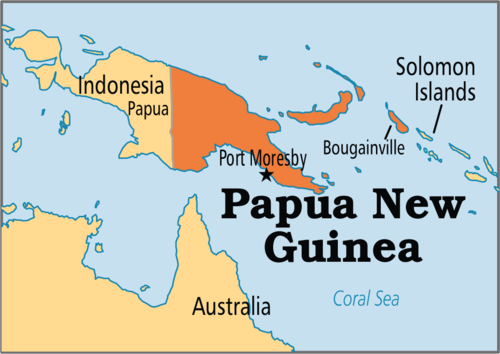
For professional baristas, please follow the coffee workshop (Wechat official account cafe_style)
Asian coffee is not the same as in Europe and the United States, generally do not like sour, hate bitterness.
I generally don't like sour. I have no choice but to choose coffee beans with a deep degree of cultivation.
However, there is a new producing area-Papua New Guinea, the coffee beans produced have the rich and solid taste of Mantenin, but the acidity is very low, and the flavor is very clean, so it is a good choice to dislike sour taste!
Papua New Guinea, you may be a little strange to this place of origin, so let the editor introduce it to you.
Papua New Guinea is located in the southwest Pacific Ocean, the circum-Pacific volcanic belt, the land belongs to volcanic geology, has a fertile soil, is an important natural condition for good coffee.
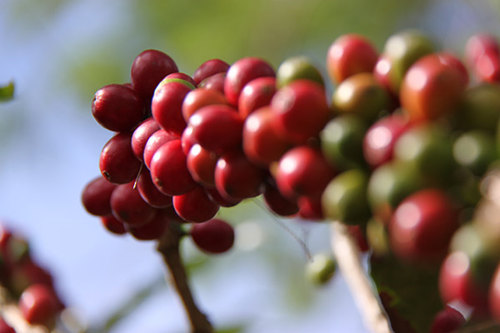
Although there is a good environment, the share of coffee beans in the world is not high, only 0.7%. Coffee is very important to Papua New Guinea and is the only cash crop in the highlands. 40 per cent or more than 2 million smallholder families in the country depend on coffee beans and are a very important source of livelihood.
Most of the coffee beans in Papua New Guinea are grown in the highlands, and the proportion of Arabica is as high as 95%. The coffee beans in Papua New Guinea are mainly sun-dried after washing and fermentation before treatment, and the main varieties are bourbon, Arusha and Mon Donovo.
In Pakistan, important coffee producing areas are East Highlands, Enga, West Highlands and Chinbu provinces, most of which are 1200-1900 meters above sea level, with a Central American style. If the production system is dominated by small farmers, a few have large estates or government-specific support programs. The coffee beans in Papua New Guinea have been respected by many people in recent years because of their solid taste, low acidity and clean flavor, which is in line with the Asian preference for coffee and is a rising producer of Asian coffee.
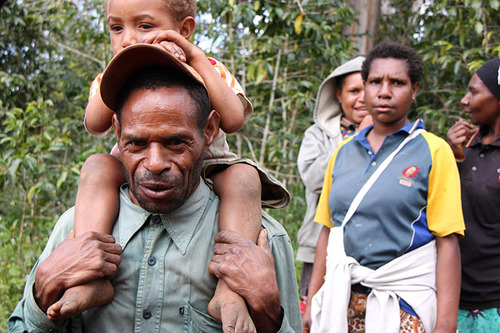
The recently introduced Papua New Guinea coffee beans, which are from Baroda Manor in the eastern highlands of Pakistan, are coffee beans participating in the Tyrola Cherry Project.
Yuban of Baroda Manor. Ben Colbran was founded in the 1960s. The Ke Brown family has always played the role of collectors and intermediaries of large multinational traders to ensure the stable and high quality performance of coffee under direct trade.
During the peak season, the Hongtong coffee cherries harvested on the same day will be immediately sent to the washing department of Baroda Manor for treatment, and coffee farmers will be paid immediately after the coffee cherries have been screened and checked for quality. After that, the manor will begin a series of treatments: depulp, fermentation, washing, drying and so on.
The Cobham family, now in its third generation, is managed by Ben's son Nickel and grandson Chris. They not only run the estate, but also purchase coffee berries from various estates and independent small farmers.
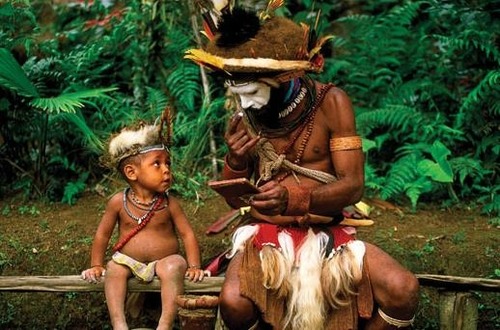
In 2005, Chris started the Tyrola Cherry Project (Tairora Cherry Project), which aims to improve the transparency of transactions and improve the procurement process with neighboring small farmers. The Tyrola Cherry Project is a mixture of four varieties, including Tyoica, Arusha, Bourbon and Kaddura.
The beans come from every corner of the village, and Tyrola is the largest tribe in the region, so Chris chose to use it as a name to symbolize all the people in the area who contribute to coffee.
In early 2010, MTC (Australia's well-known exquisite coffee importer) and the Colleen family began to work together to bypass large multinational traders and focus on discovering unique, small batches of fine coffee. The Coban family examines the small farmers they work with every season and buys the best coffee berries in the region.
Over the past 50 years, with the cooperation of various manors and small farmers, the Ke Brown family has not only provided assistance in its expansion and operation, but also built roads, piers, schools and lanes in recent years. The Ke Brown family is not only the estate where the residents of the Ramali Valley sell coffee berries, but also the object of their respect.
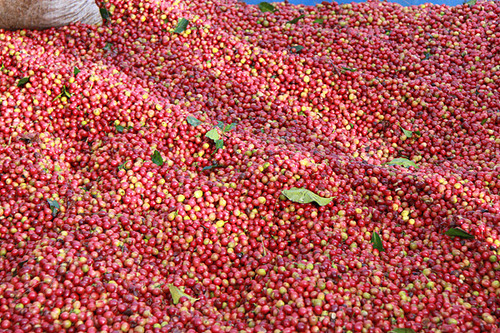
Would you like to try this special batch of coffee beans from the Tyrola Cherry Project in Papua New Guinea?
This coffee bean has the sweet smell of maple syrup and the sweet taste of ginger black sugar. It is worth knowing that whether it is medium-roasted or medium-deep roasted, it tastes good either on a single product or with milk.
Important Notice :
前街咖啡 FrontStreet Coffee has moved to new addredd:
FrontStreet Coffee Address: 315,Donghua East Road,GuangZhou
Tel:020 38364473
- Prev
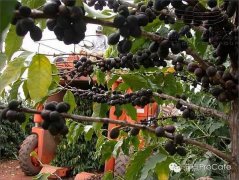
The latest coffee treatment method of Yega Xuefei in Ethiopia-- dried fruit on trees and drying in mulch
Professional barista communication please follow the coffee workshop (Wechat official account cafe_style) what is tree dried coffee? Some farmers deliberately let coffee berries naturally dry dried on the tree or Tree Dry-Process on trees, coming from beans harvested at a late stage, after the cherry ha
- Next
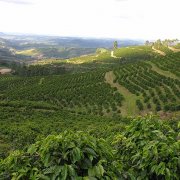
Kenyan Coffee: another interpretation of good Coffee
Kenya is located in eastern Africa, the equator runs through the central part, and the East African Rift Valley runs through the north and south. It is bordered by Somalia to the east, Tanzania to the south, Uganda to the west, Ethiopia and South Sudan to the north, and the Indian Ocean to the southeast. 18% of the land area is arable land, and the rest is mainly suitable for animal husbandry. The whole territory is located in the tropical monsoon area, but affected by its higher topography, it is a savanna climate.
Related
- Detailed explanation of Jadeite planting Land in Panamanian Jadeite Manor introduction to the grading system of Jadeite competitive bidding, Red bid, Green bid and Rose Summer
- Story of Coffee planting in Brenka region of Costa Rica Stonehenge Manor anaerobic heavy honey treatment of flavor mouth
- What's on the barrel of Blue Mountain Coffee beans?
- Can American coffee also pull flowers? How to use hot American style to pull out a good-looking pattern?
- Can you make a cold extract with coffee beans? What is the right proportion for cold-extracted coffee formula?
- Indonesian PWN Gold Mandrine Coffee Origin Features Flavor How to Chong? Mandolin coffee is American.
- A brief introduction to the flavor characteristics of Brazilian yellow bourbon coffee beans
- What is the effect of different water quality on the flavor of cold-extracted coffee? What kind of water is best for brewing coffee?
- Why do you think of Rose Summer whenever you mention Panamanian coffee?
- Introduction to the characteristics of authentic blue mountain coffee bean producing areas? What is the CIB Coffee Authority in Jamaica?

